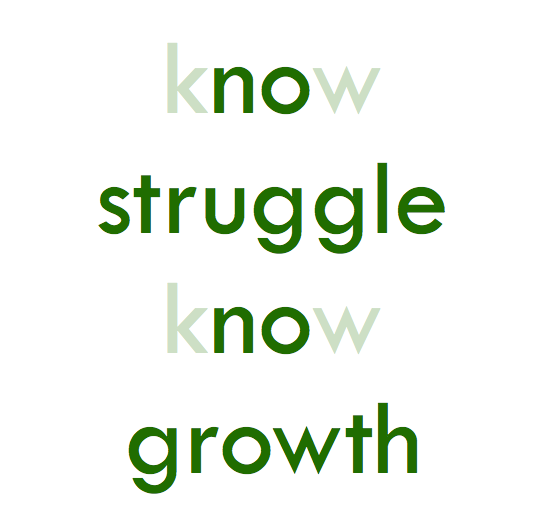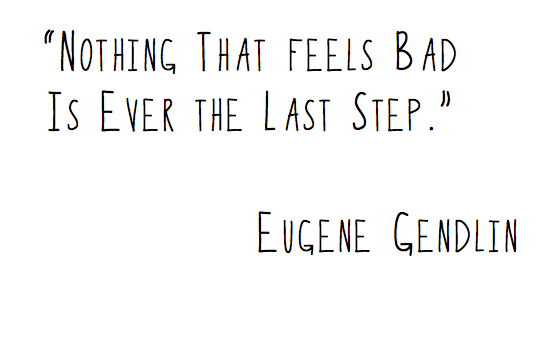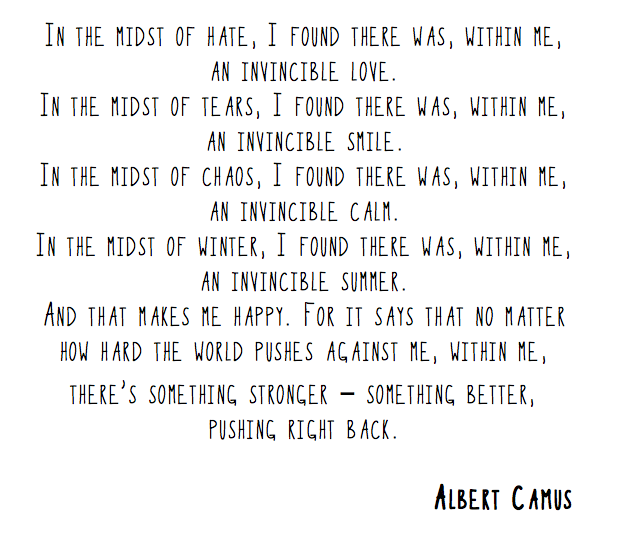New Year's Belly Breathing Challenge
January 09, 2023

What if I told you there's a medicine for stress and anxiety you could take that's incredibly effective, completely cost-free, and has zero side effects? Consider the following post a PSA/infomercial for the amazing, life-changing powers of deep breathing. Everyone knows that deep breaths are good for you, and something to do when you're upset. But it's a classic for a reason! Let's talk today about deep breathing — belly breathing— and why and how to incorporate this ridiculously simple and effective tool into your life every day.
When we are scared or stressed, our breathing naturally becomes shallow and rapid as we move into a fight-or-flight stress response. This is GREAT if you're being chased by a bear, but becomes inefficient and dangerous when our bodies respond that way to everyday stressors at work or home (looking at you, times I have to call customer service for any reason). The effects of chronic stress on our physical and emotional health are myriad and, um, is "horrifying" too stressful a word to use here? Yes? Ok, let's just go with "not great."
Managing stress is essential for anyone who wants to be healthy, but if we have a proclivity for anxiety or depression or any underlying physical ailments, coping with stress is an even greater necessity. To protect our health to function as our best selves in the world, we need to let our brains know that we're not actually in bear-attack-level danger, and to switch from the cortisol-soaked sympathetic nervous system to the rest-and-digest chill mode of the parasympathetic nervous system. (FYI, there are many ways to manage stress and regulate our neurochemistry — yoga, cardiovascular exercise, gratitude journaling, time in nature, meditation, connection, etc. — but today we're just focusing on belly breathing.)
Here's how to do it:
- Lie on your back on the floor/a yoga mat
- Put one hand on your stomach and the other on your chest
- Breathe in slowly and deeply through your nose, filling your belly as deeply as you can. If you're doing it right, you'll feel the hand on your belly lift and the hand on your chest remain basically the same
- Hold the breath until you feel a need to exhale
- Exhale deeply through pursed lips, making a big WHOOSH sound, feeling your stomach deflate with the out breath
- Repeat
Do this for 5-10 minutes at a time, 3-4 times per day — I like to recommend when you get up in the morning, on your lunch break/at the end of your work day, and before bed. As you learn what being really relaxed feels like, you can start noticing when you're moving out of a relaxed state and stress mode (signs include stressful thoughts, body tension/physical distress, feelings of overwhelm, frustration or anxiety), and then take a few deep belly breaths to get back on track. Tech tip: If you have an Apple Watch, you can use the Mindfulness app to set a deep breathing timer for 5 minutes and even schedule reminders on a daily basis (you can also adjust the number of breaths per minute in your Watch app, if you choose). Give it a try and notice how you feel!
Family Estrangement Resources
May 03, 2021

This is the week our culture celebrates moms — which is awesome! …unless you're among the 20% or so of people estranged from a family member (like your mom). Shame about having a dysfunctional relationship with a family member leads many people to suffer the pain of that disconnection in silence, especially on family-focused holidays like Mother's Day, Father's Day, Thanksgiving, and Christmas. Dysfunction among family members is not rare — it's very common. And just as romantic relationships sometimes don't work out despite our best efforts, family relationships, too, can become so toxic the healthiest solution is to end the relationship.
Interestingly, while most of us would celebrate the ending of a toxic romantic relationship, there is a surprising (and enduring) cultural pressure around keeping parents and children together at all costs. Just as there once was a significant cultural taboo against divorce, our culture puts a premium on keeping blood relations in contact. Even after experiencing severe mistreatment, people who are estranged from family members often report being scolded to forgive and forget, that nothing is more important and family, as if their decision were a whim, or coming after years of a basically close and happy relationship with their family member. In fact, for those who choose to step back from dysfunctional family relationships, the decision is often a gradual, years-in-the-making, heart-rending process. Estranged people typically have endured histories of abuse, neglect, betrayal, abandonment, and criticism/contempt — and have gone through years of attempting to work through the conflict — before electing to disengage. Pressure to reunite with family members can feel very shaming. Most estranged children of toxic parents report that the most painful part of estrangement is not the loss of their family member, but the sense of judgment from others and the grief of never having the mother-father-sister-brother they needed.
If you are estranged, know you're not alone. Oprah Winfrey, Matthew McConaughey, Brie Larson, Aaron Rodgers, Adele, Mariah Carey, Drew Barrymore, Jennifer Aniston, and members of a certain royal family (ahem) all have distanced themselves from toxic family relationships to take care of themselves. In fact, the emerging research suggests that, for most estranged people, leaving the dysfunctional family relationship was a good decision that created a sense of relief and peace. If you have a loved one who's estranged from a family member, be mindful of the shame they may feel around making this hard decision and avoid counseling them to repair things at all costs. As always, validate them and accompany them in their pain and affirm their right to take care of themselves.
If you'd like more information, here are a few helpful resources on family estrangement:
New York Times: When an Estranged Relative Dies, Some Face Grief, Regret and Relief
GOOP: How Do You Handle Being Estranged from Family?
Good Housekeeping: What Is Estrangement — And Should You Consider It?
Inc.: Estranged from Your Family? Here's Why You Should Stop Feeling Guilty
University of Cambridge: Hidden Voices: Family Estrangement in Adulthood Survey Results
To Calm Big Feelings, Validate Them
March 06, 2021

It was a Sunday afternoon when my then 5-year-old son first asked to go out into the front yard to have a go at his new tee-ball set. I imagine, as he drew the bat back and blasted away, he expected a pretty spectacular hit. If not exactly the kind of dinger that is only possible with the help of metabolic steroids, then at least something better than the unimpressive, well, flop that the little plastic ball did just a few feet from the tee. My son howled in anger and disappointment. In a nanosecond, my brain had produced a few possible responses: I could tell him that his body hadn't been lined up right, that his grip was off, and, in short, that he should cool it, it wasn't a big deal — we could just try again.
Fortunately, that weekend I had been at a family therapy training, and that very day my teacher reminded us that parents should always "validate before you educate." In seconds, I shifted from wanting to fix or control his reaction to just seeing my son was angry and disappointed. Of course he was! Who isn't frustrated when they want to do something and it doesn't go right? So I said, "You're mad! You wanted the ball to go far, and it didn't, and you're really frustrated! That makes sense. I'd be frustrated, too!" He looked at me as my words slowly percolated down. In about ten seconds, the wave of emotion had passed and he was ready to come back to the ball and bat, ready for my basic pointers about his at-bat form. He got the basics of baseball that day, but I was the one that learned the lesson.
This memory comes back to me often when I talk to my clients about the importance of validating emotions — for themselves, for their partners, for their children. Not because I've since been perfect in my validation as a partner and parent — sadly, my validation batting average is…not exactly 1.000. No, this is the memory that epitomizes how magical validation is, how deeply important and, well, efficient it is. A new study out of Ohio State University affirms what my family therapy teacher was saying that day: invalidating feelings makes them worse and makes it harder to feel better. In the study, only participants who were validated reported their mood went back to normal after recalling an event that made them angry. Invalidated participants found that their moods continued to decline.
Many of us are uncomfortable with core feelings like sadness, anger, fear, and even joy — often because our caregivers were similarly uncomfortable with them or because someone's out of control anger, fear, or sadness created a dangerous climate for us in the past. So, naturally, when faced with our partner's anger or our sister's sadness in the present day, we try to move away from it. Afraid it'll get bigger, grow out of control if we give it attention or imagine ourselves in their shoes. This was what fueled my (wrong) instinct to tell my son how to fix it, or try to talk him out of his angry feelings. The science is clear that if I'd done that, I would have made him angrier for longer and caused damage both to our relationship and his trust in his own feelings. I don't want that for my son or anyone I care about — and I'm sure you don't want it for your loved ones, either.
So, what is validation and what does it look like? Let's start with what it isn't. Invalidation is judging, rejecting, or ignoring another person's emotional experience. As vulnerability researcher Brene Brown says, empathic, validating statements never begin with "at least" or trying to find the silver lining. If I'd told my son "at least you hit the ball" or some version of the old classic "big kids don't cry," I would have been covertly telling my child, "your feelings are not ok." Validation is recognizing and accepting another person's emotional experience, connecting with them on a human level and undoing their aloneness. Validating statements sound like:
- "Of course you feel like that."
- "That makes sense."
- "I'd feel like that, too! Anyone would in that situation."
- "You're not crazy/wrong. That wasn't ok."
- "I can see why you'd feel scared."
- "That's totally normal/understandable."
- "I've been there, too."
- "Ugh! That's awful!"
Validation not only helps regulate emotions, it builds connection and fosters resilience. It tells people they are important, that they are accepted and cared about, that they are understood. Paradoxically, honoring their difficulty helps your loved one persevere. In my son's case, it allowed him to be open to trying again and to receiving my coaching. In contrast, invalidation fosters shame, rigidity, and toxic aloneness. So, the next time your loved one is angry, sad, or scared, try validating that it makes sense they feel bad. Counterintuitive as it may seem, it really will help them feel better faster.
Resilience in Winter: Allowing Emotional Hibernation
February 19, 2021

I just read this lovely article by AEDP therapist Eileen Russell and wanted to share it with you. Some quotes that really struck me:
“I think of resilience as comprising processes that human beings use on behalf of the self to both survive adversity and also to thrive in favorable conditions. To my mind, resilience is not about being “strong” in the sense of being unaffected by what life throws at us. Increasingly I think it is truly about flexibility. How do we stretch into spaciousness and opportunity when it presents itself for our growth and expansion and also know when and how to contract and save energy when conditions are truly inhospitable?”
“So, can human beings contract without shutting down completely? Can we find ways to surrender to the withdrawal that happens under experiences of chronic stress without turning against ourselves or each other? If we let go of the unrealistic expectation that we could be feeling so much better if only we (fill in the blank), might we experience this mid-winter period of our lives as slightly more bearable and circumscribed? Can we develop some gentleness toward our failure to “overcome” our circumstances?"
“It is true that none of us can go to sleep for the winter. But perhaps metaphorically it is helpful to imagine that nature may have endowed people with capacities to take in less and to put out less when it is necessary for our psychic survival. If we think of this state as a kind of psychological hibernation we might be less inclined to pathologize it or to fight it as if we could actually create the stimulation and possibilities that are available to us under other circumstances. If there is a season for everything, perhaps this time invites us to rest and let go of our need to turn reality into what it is not. If we allow for a certain psychological hibernation now, we might trust ourselves to welcome “spring” when it comes. Because it will come.”
The Nature Pill
April 17, 2020

In the latest "stuff we already knew but science has confirmed" news, apparently nature is good for you! This awesome study found that just 20 minutes of walking or sitting outside someplace that makes you feel connected to nature significantly lowered cortisol levels. So, especially in the midst of this stress-hurricane we're all riding out, please make sure to take your nature pill every day!
From Trauma to Transformation
April 17, 2020

I wanted to share the story of this dog's journey with you guys. It moved me to tears this morning to watch this dog's amazing transformation from knowing only abuse and violence to finally experiencing love and safety. This is such a perfect encapsulation of the growth work we so often do in therapy—we come in, protecting ourselves in ways that made sense given all we've ever known, like Phoenix's barking and snapping. It understandably takes time, courage, and consistency for those defenses to feel safe relaxing into a new experience. But then, once those defenses can relax into a safe experience, there's the pleasure of (and confusion about or fear of) something new. The relief of setting aside the burden of those defenses and the aloneness that comes with that. We move in and out of the new experience, and then, with support, we settle into peaceful transformation. Just wow.
…and also, because I'm a dog mom and can't help myself, "Who's a good boy?!?"
Thriving Through Trauma
March 26, 2020

Great video from a colleague that explains how "strain trauma," caused by constant exposure to distressing events, works and how finding meaning and ways to be helpful and empowered are the key to not getting PTSD through stressful/life-threatening situations.
Self-Care in a Time of Crisis
March 23, 2020

Wondering how to take care of yourself in a pandemic? Here are some tips to help you not just survive, but thrive:
1) Get outside. Nature works wonders. Get some fresh air every day.
2) Exercise. At least 30 minutes a day. Research affirms that cardio and yoga have excellent mental health benefits.
3) Maintain good sleep habits. Go to bed and wake up at reasonable times.
4) Stay social. Keep in touch with your peeps via FaceTime, phone calls, text, virtual happy hours, watching a bad movie online together, etc.
5) Eat well and hydrate. I truly wish I could tell you this meant eat more chocolate and drink more red wine. Truly.
6) Give everyone a lot of grace right now (including yourself). Your kids may be bonkers, your partner may be short or distant. Remember: this is hard—really hard. Be kind. (Especially to yourself. Now is a really good time to be extra patient and supportive with your sweet self, too.)
7) Limit your news intake. Stay informed, but make sure you're not spending more than 1 hour per day reading/watching. And be sure to balance out the distress by reading things like The Good News Network. Clients have also recommended Human Progress and the Reddit Uplifting News thread.
8) Look for the helpers. Do what Mr. Rogers taught us and look for the helpers. Notice every day what is good, inspirational, and moving.
9) Be a helper. Support your local restaurant by getting takeout, shop for an elderly neighbor, donate to a good charity (try Direct Relief) or food bank, find ways to pay people who can't do work for you right now (your housecleaner, your hair stylist, your massage therapist), sew masks for doctors and nurses, etc.
10) Control something. Now is the time to unleash your inner Marie Kondo upon your home office, closet, or pantry and regain a tiny shred of control. Type A's—rejoice!
11) Start a big project. Learn to play an instrument, take some online classes, start a big jigsaw puzzle, program the ultimate video game mod, watch a 7-season TV show, etc. Anything to keep you busy, distracted, and engaged.
12) Do some art. Play some music. Dance. Express yourself through whatever media works for you.
13) Laugh. Find something funny every day: silly animal videos on YouTube, a ridiculous comedy on Netflix, etc.
14) Reach out for help. Talk to your people. Feel your feels. You may have to be 6 feet away, but you don't have to do this alone.
15) Remember this is temporary. We don't know how long this will last, but we do know that at some point, this will all be behind us and we will go back to feeling free, safe, and connected.
16) Make this meaningful. What do you want to learn from this difficult experience? What needs to change about your life? In your relationships? Your priorities? Your community? Take the opportunity to make meaning from this challenge and make it an opportunity to grow.
17) Practice mindfulness. Research tells us that taking time to breathe and re-center every day can make a huge difference. Try the 5 minute meditation I posted earlier this month.
18) Keep washing your hands!
How to Make Stress Your Friend
March 13, 2020

When I was in graduate school, a lot of the focus was on how BAD stress is, how physically damaging it is to our bodies. As psychologists, we've been trained that stress is, well, kind of the enemy. However, Kelly McGonigal convincingly articulates in this TED talk that this is exactly the wrong approach and that we should see physical signs of stress (e.g. racing heart, faster breathing) not as something to dread, but as evidence that your body is helping you rise to the challenge.
She also makes the case that the hormone oxytocin is part of the body's incredible stress response — it motivates you to strengthen close relationships, to seek physical contact, be more empathic, offer help, or talk about your feelings. She explains to us that receiving/giving support has been demonstrated to help people recover faster from stress. As she so succinctly puts it, "caring creates resilience."
So, in times of crisis, and in the simple day-to-day bumps of life, I hope you will stay mindful of the importance of trusting your body's stress response and remember that reaching out might (literally!) save your life.
Trusting the Pull of Emotions
July 12, 2019

My colleague, the awesome EFT therapist and supervisor Jennifer Olden, just shared this the other day, and I'd like to share it with you:
"My best friend is a kayaker and she shared that one of the dangers of kayaking is it’s possible to get caught in an eddy and be dragged underwater and drown. Your best shot a survival is to not fight it. You have to let the river pull you to the bottom, relax all your limbs. At the bottom of the river, the current reverses and you will be propelled back to the top. It’s beyond counter-intuitive to relax in the face of death… Focusing on the deepest grief, the greatest fear, and the most harrowing moments are the currents pulling us down; trusting the biology of emotion means that we know we will be propelled back up."
I just love how Jen puts that. Almost all of us are learning to not fight the current of emotion, but to trust that there's an important biologically-driven process at work when our feelings show up. So many of us get caught in fighting the eddy, avoiding the currents trying to take you where you need to go to heal—and, honestly, who wouldn't want to avoid those currents when the eddy feels so dark and deep and dangerous?!
While we all feel the urge to avoid, it's so important that we understand that we must instead lean into the very thing that's scaring us. AEDP therapist Ron Frederick talks often in his wonderful book Living Like You Mean It about the importance of letting the wave of emotion hit you, trusting that it will move through you and take you where you need to go to feel better. When we feel our feelings all the way through, there's a sense of release and completion. So, the next time you find yourself getting pulled down by the eddy of emotion, try leaning into it, trusting it to take you where you need to go.
Know Struggle, Know Growth
January 19, 2019

"If there is no struggle there is no progress. Those who profess to favor freedom and yet deprecate agitation are men who want crops without plowing up the ground; they want rain without thunder and lightning. They want the ocean without the awful roar of its many waters." — Frederick Douglass, 1857
I LOVE this quote. At a global level, it reassures me that the things that feel so tumultuous and threatening in our world right now are normal processes, that next season's crops come after first plowing up the ground, that pain comes before birth. It shifts me from feeling afraid and threatened to feeling more hopeful—and even curious about what growth might be on the way.
I thought of this quote recently when an awful, roaring wave of anxiety disturbed my calm ocean within. With the benefit of hindsight, I see that my seemingly unwelcome anxiety was actually the start of a beautiful process of healing something deep within me. As I healed that part of me, I felt empowered and, yes, free.
This quote reminds me to just let my feelings come, to stay open, curious, and connected (to myself and my loved ones) and trust that struggle within me is actually a harbinger of growth and change. It invites me to remember that my distress is the first sign of a process working within me toward greater healing, happiness, and wholeness. It reassures me that if I stay with my distress and trust it, relief is on the other side of that wave, because "nothing that feels bad is ever the last step."
And so I invite you to sit with this quote and notice what you feel inside as you read it. Think of how often great pain, anger, or fear has come before a place of growth, healing, understanding, relief, joy, or freedom. I wonder how it would be for you, right now, to welcome something inside you that feels hard, confusing, or scary, knowing that all you're feeling is the start of things being much, much better for you.


